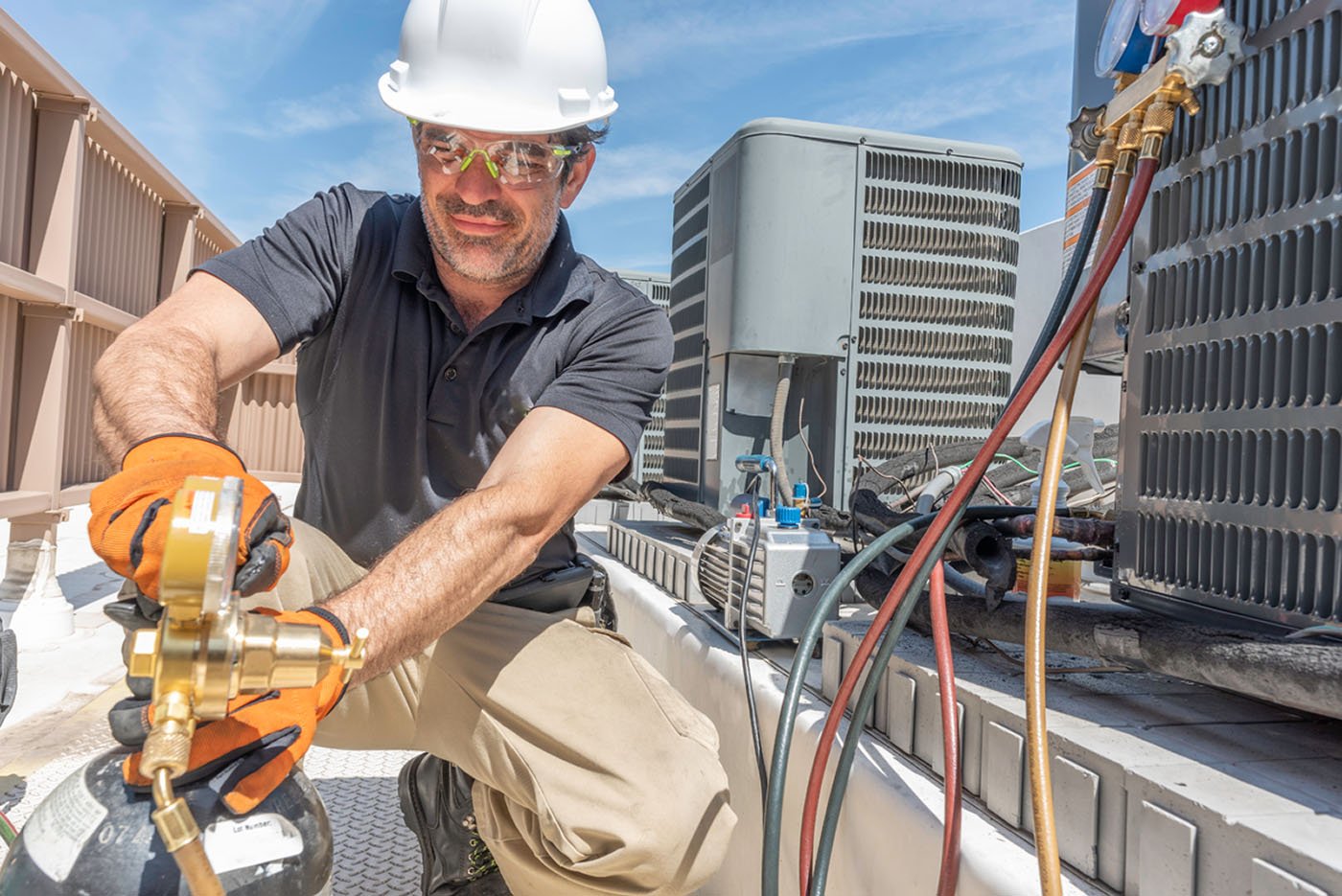Professional Air Conditioning Installation to Conquer the Summer Heat
Wiki Article
Discover Comprehensive HVAC Solutions for All Your Heating and Air Conditioning Demands
On the planet of home convenience, the selection of an ideal heating and cooling system plays a pivotal function. Whether it's the blistering heat of summertime or the biting cold of wintertime, a reputable HVAC solution makes certain a well balanced interior environment. Home owners must navigate a variety of options, from energy-efficient models to sophisticated geothermal services. Comprehending these options not just improves comfort however likewise enhances energy intake. More expedition of these systems discloses the complex equilibrium between expense and performance.Comprehending Different Kinds Of Cooling And Heating Equipments

Picking the Right Cooling And Heating System for Your Home
Choosing the ideal cooling and heating system for your home entails cautious consideration of several aspects. Home size considerably influences the system's capacity required to effectively warmth and cool the room. Additionally, the environment in which one lives figures out whether to prioritize home heating performance, cooling power, or a balance of both. Power effectiveness ratings, such as SEER (Seasonal Power Effectiveness Proportion) for cooling down and AFUE (Annual Gas Use Efficiency) for heating systems, are important in choosing an economical unit that lines up with financial and environmental goals. The type of system-- whether a split system, crossbreed, or ductless-- should straighten with the home's structural style and existing ductwork to make certain ideal efficiency and ease of setup.The Significance of Normal HVAC Maintenance

Typical Cooling And Heating Troubles and How to Address Them
In spite of routine upkeep, cooling and heating systems can still encounter a variety of typical concerns that influence their performance and functionality. For instance, dirty filters can obstruct air movement, reducing system efficiency and stressing its parts. Consistently changing or cleansing filters can avoid this issue. One more constant concern is thermostat breakdowns, which can trigger the heating and cooling system to run excessively or not sufficient, bring about pain and boosted energy bills. Monitoring and rectifying the thermostat can solve this problem. Leaks in cooling agent lines additionally impact performance, calling for specialist discovery and repair work. Additionally, broken parts like capacitors and follower motors could fall short, requiring timely fixings to prevent more substantial damages and ensure optimum performance.Reviewing the Cost-Effectiveness of Heating And Cooling Upgrades
Why should homeowners consider updating their cooling and heating systems? Upgrading a heating and cooling system can considerably reduce power intake, causing reduced utility costs and enhanced power effectiveness. Modern systems are developed to be much more eco-friendly, utilizing much less power to achieve the exact same degree of convenience contrasted to older models. Furthermore, more recent devices frequently come with advanced functions such as programmable thermostats, which can maximize heating and cooling routines based upon lifestyle patterns, additionally boosting price financial savings (AC maintenance services).When assessing the cost-effectiveness of these upgrades, it's essential to think about the preliminary investment against long-term savings. Typically, the greater ahead of time price can be countered by the decline in continuous energy expenses and maintenance prices. Moreover, several city governments provide rebates and incentives for energy-efficient appliance acquisitions, making upgrades a lot more economical.
Final Thought
In final thought, selecting the ideal cooling and heating system and making sure routine upkeep are important for optimal interior comfort and air quality. Numerous systems provide customized options, making it important to understand the details requirements based on home dimension and local environment. Addressing usual problems promptly and taking into consideration energy-efficient upgrades can substantially enhance system performance and cost-effectiveness. Eventually, professional a/c services give HVAC repair a trusted pathway to attaining and preserving a comfy, energy-efficient home environment.In contrast, ductless systems, such as split, multi-split, or mini-split systems, provide direct air conditioning and heating to particular areas without the requirement for ductwork, using even more localized control and potentially minimizing power losses linked with ducting. The kind of system-- whether a split system, crossbreed, or ductless-- need to align with the home's structural design and existing ductwork to guarantee optimal performance and convenience of installment.
Routine Heating and cooling maintenance is important for making sure that home heating and cooling systems operate at peak efficiency. An additional regular problem is thermostat malfunctions, which can cause the HVAC system to run exceedingly or not sufficient, leading to discomfort and increased power costs (AC maintenance services). Upgrading a Heating and cooling system can considerably reduce power intake, leading to reduced utility costs and raised energy performance
Report this wiki page